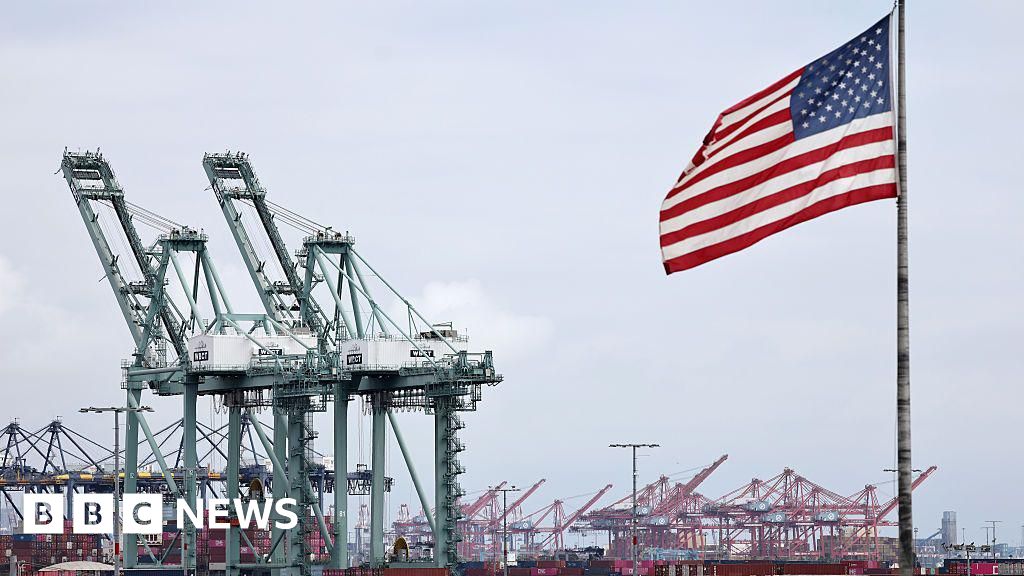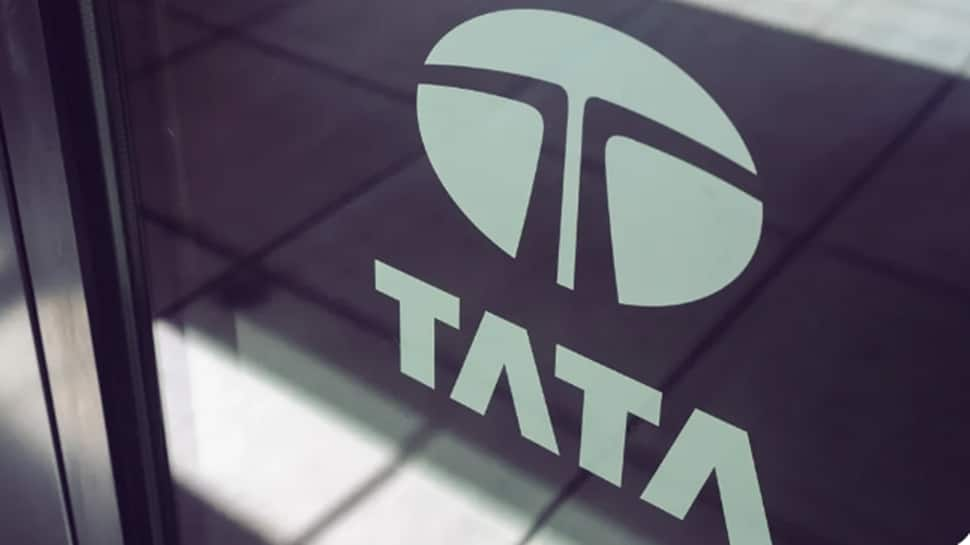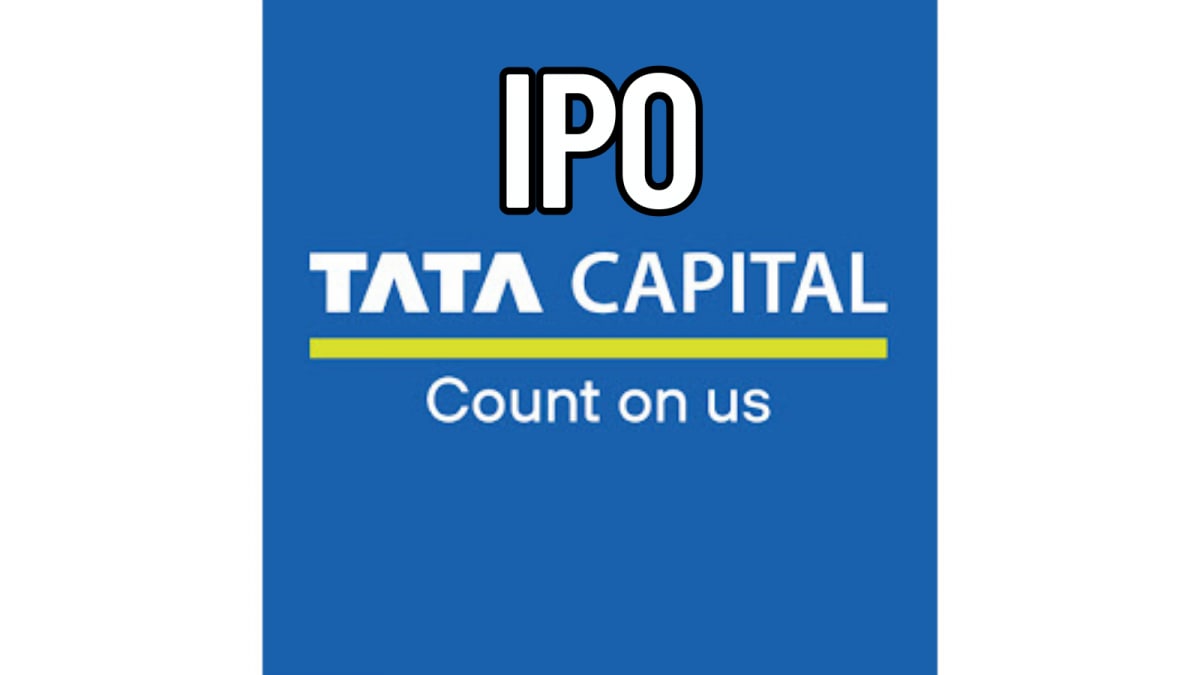Business
Tata Capital IPO: Rs 15,512 crore IPO fully subscribed; stock market debut on Oct 13 – The Times of India

Tata Capital Ltd’s initial public offering (IPO) was fully subscribed on Wednesday, the final day of bidding. The Rs 15,512 crore share sale drew bids for 45.85 crore shares against 33.34 crore shares on offer, a subscription of 1.38 times, according to NSE data till 1:36 PM IST.Among investors, the Qualified Institutional Buyers (QIBs) category was the most active, with 2.07 times subscription. Non-institutional investors applied for 1.46 times the shares allocated to them, while Retail Individual Investors (RIIs) saw 93% subscription.Ahead of the IPO, Tata Capital raised Rs 4,642 crore from 68 domestic and international institutional investors on Friday. The anchor book received nearly five times more demand than the allocation.The share price range for the IPO is Rs 310-326, placing Tata Capital’s valuation at about Rs 1.38 lakh crore at the top end. The IPO comprises 47.58 crore shares, with a fresh issue of 21 crore shares and an Offer For Sale (OFS) of 26.58 crore shares. Under the OFS, Tata Sons will sell 23 crore shares, while the International Finance Corporation (IFC) will offload 3.58 crore shares.Currently, Tata Sons holds an 88.6% stake in Tata Capital, and IFC owns 1.8%. The proceeds will boost the company’s Tier-1 capital base to support future lending and other capital needs.This is the Tata Group’s second listing in recent years, after Tata Technologies went public in November 2023. The move also meets the Reserve Bank of India’s requirement that upper-layer NBFCs be listed within three years; Tata Capital was classified as an upper-layer NBFC in September 2022.Tata Capital offers more than 25 lending products for individuals, entrepreneurs, small businesses, SMEs, and corporates. It also distributes third-party products like insurance and credit cards, provides wealth management services, and acts as a sponsor and investment manager for private equity funds.The company is set to make its stock market debut on October 13.
Business
Trump’s new global tariff comes into effect at 10%

The global levy comes in at 10%, lower than the rate the president had threatened at the weekend.
Source link
Business
How long will Jamie Dimon stay as JPMorgan CEO? Bank chief signals ‘few more years’ at the helm – The Times of India

JPMorgan Chase CEO Jamie Dimon signalled he plans to remain in charge of the largest US bank for “a few years,” offering fresh clarity on leadership succession even as the lender projected strong investment banking and trading performance, Reuters reported.Speaking at the bank’s Investor Day in New York, Dimon said he does not intend to step down immediately and may continue with the firm in a different role after eventually relinquishing the chief executive position.“I’m here for a few years as CEO, and maybe a few after that, as executive chairman, pending whatever the board wants to do,” Dimon said.His remarks come amid long-running investor speculation over succession planning at JPMorgan, where Dimon has led the bank for two decades. The lender’s board, he has previously said, remains focused on preparing a deep bench of executives capable of eventually taking over leadership.Under Dimon’s tenure, JPMorgan has risen to become Wall Street’s largest bank by both assets and market value, with a market capitalisation exceeding $800 billion — eclipsing the combined value of rivals Bank of America and Citigroup.Alongside leadership commentary, JPMorgan said it expects investment banking fees and markets revenue to post strong growth in the first quarter, easing concerns that recent equity market turbulence could disrupt dealmaking activity.Investor worries had grown after a sharp sell-off in software and technology stocks — driven by fears of artificial intelligence disruption — raised doubts about mergers and acquisitions and IPO pipelines for high-growth companies.Allaying those concerns, the bank said investment banking fees are expected to rise by a mid-teens percentage, potentially reaching the high teens in the quarter.“We started the year strong. Pipelines were very good, and it was broad based. The one thing I will say in M&A (is that) there are powerful strategic drivers,” Doug Petno, Co-CEO of JPMorgan’s commercial and investment bank, said. “I think a lot of these transactions will survive the volatility and carry on.”Markets revenue is also expected to increase by a mid-teens percentage, supported by elevated trading activity during volatile market conditions, when investors hedge risks and reposition portfolios.The bank kept its forecast for annual adjusted expenses unchanged at $105 billion as it continues investing heavily in technology and artificial intelligence initiatives.JPMorgan expects to spend $19.8 billion on technology in 2026, up 10% from a year earlier.“We continue to invest in AI and we’re seeing tangible benefits in multiple areas. Machine learning and analytical AI have been driving improvements in revenue,” Chief Financial Officer Jeremy Barnum said, as quoted Reuters.UBS analyst Erika Najarian said markets increasingly view large money-centre banks as relative beneficiaries of AI disruption, adding investors are keen to understand both productivity gains and revenue opportunities from the technology.Executives said US consumers remain resilient despite elevated interest rates and economic uncertainty, helping sustain spending and credit quality.JPMorgan executive Marianne Lake said the bank had not seen deterioration among lower-income consumers and that “everything is solid” on the consumer front.The lender is targeting a return on tangible common equity of 17%, a key profitability metric measuring how efficiently tangible equity generates profits.In January, JPMorgan reported fourth-quarter earnings that exceeded analysts’ estimates as volatile markets boosted trading income. The bank beat Wall Street profit forecasts in all four quarters last year, according to LSEG-compiled data.JPMorgan shares rose 34.4% in 2025, outperforming both large-cap US banking peers and the broader equity market, while the stock traded marginally higher in post-market activity.
Business
Spirit Airlines plans to slash flights, fleet in bid to emerge from bankruptcy as early as spring

A Spirit Airlines Airbus A320 taxis at Los Angeles International Airport after arriving from Boston on September 1, 2024 in Los Angeles, California.
Kevin Carter | Getty Images News | Getty Images
Spirit Airlines is gearing up to shrink to a tiny version of its former self in an attempt to survive, according to a new plan it unveiled in U.S. Bankruptcy Court on Tuesday.
The budget-travel icon said it will get rid of even more of its Airbus fleet as it plans to exit its second bankruptcy in less than a year. It expects to emerge in late spring or early summer, Spirit’s lawyer, Marshall Huebner of Davis Polk, said at a hearing.
The airline has reached an agreement in principle with its creditors for the plan, Huebner said, adding that secured lenders will make “material incremental liquidity available to Spirit via the release of cash collateral.”
In its second bankruptcy, Spirit had held deal talks with Frontier Airlines, and with investment firm Castlelake. Nothing materialized, but Huebner hinted a combination could be back on the table.
“This emergence will allow Spirit to do many things from a position of strength and stability, including to consider potential future industry transactions,” Huebner said.
Spirit’s new fleet would be made up of mostly older Airbus planes, “with the potential rejection of additional high cost NEO aircraft,” Huebner said, referring to the more modern Airbus A320 family of planes, adding that the exact size of Spirit’s fleet will depend on talks with counterparts like aircraft lessors.
He said Spirit’s annualized fleet cost would be cut another $550 million, down 65% from before its bankruptcy filing last year. The debtors have also eyed another $300 million in cost savings from non-fleet cuts, he said.
Spirit has already reduced some of its Airbus fleet and furloughed pilots and flight attendants to cut costs as it reduced its network, though some cabin crew members were called back to work ahead of spring break.
“Because every single day counts, and every single dollar counts, the airline industry is just as competitive today with this deal in hand as it was last Friday, and we must — and will — lock down what we need from other stakeholders and then begin a high speed march to get this storied company out of Chapter 11 at the earliest possible date so that it can write its next chapters from a position of strength,” Huebner said.
Spirit’s new plan will be challenging. It would pit a smaller version of Spirit against ever-larger competitors that dominate the U.S. market. Some U.S. budget carriers have struggled due to a surge in labor and other costs post-Covid, a growing consumer shift in favor of more upscale travel and increased competition from larger airlines that offer stripped down fares.
Spirit was uniquely challenged by a massive engine recall from Pratt & Whitney and a failed plan to get acquired by JetBlue Airways, a deal knocked down by a federal judge in early 2024.
Spirit forecast it would generate a net profit of $252 million last year, according to a court filing in December 2024. But it said in an August report that it lost nearly $257 million in a matter of months stretching from March 13, after it exited its first Chapter 11 bankruptcy, through the end of June. It filed for Chapter 11 bankruptcy protection again less than a month later.
-

 Entertainment1 week ago
Entertainment1 week agoQueen Camilla reveals her sister’s connection to Princess Diana
-

 Tech1 week ago
Tech1 week agoRakuten Mobile proposal selected for Jaxa space strategy | Computer Weekly
-

 Politics1 week ago
Politics1 week agoRamadan moon sighted in Saudi Arabia, other Gulf countries
-

 Entertainment1 week ago
Entertainment1 week agoRobert Duvall, known for his roles in "The Godfather" and "Apocalypse Now," dies at 95
-

 Business1 week ago
Business1 week agoTax Saving FD: This Simple Investment Can Help You Earn And Save More
-

 Politics1 week ago
Politics1 week agoTarique Rahman Takes Oath as Bangladesh’s Prime Minister Following Decisive BNP Triumph
-

 Tech1 week ago
Tech1 week agoBusinesses may be caught by government proposals to restrict VPN use | Computer Weekly
-

 Sports1 week ago
Sports1 week agoUsman Tariq backs Babar and Shaheen ahead of do-or-die Namibia clash











